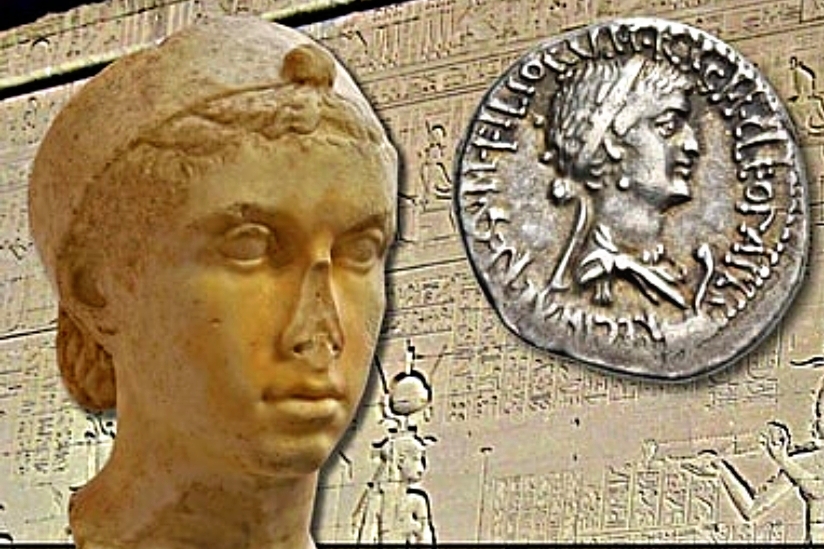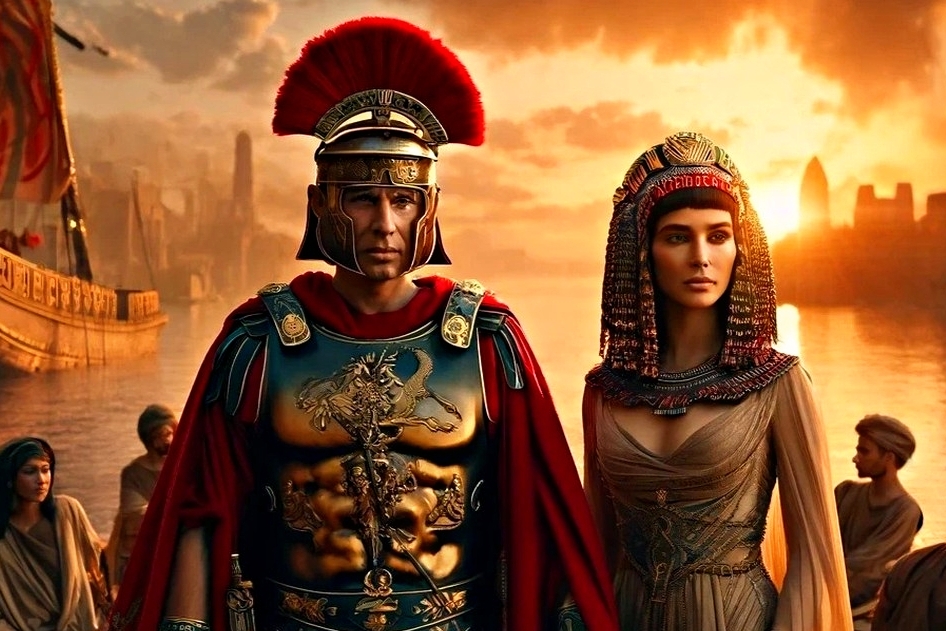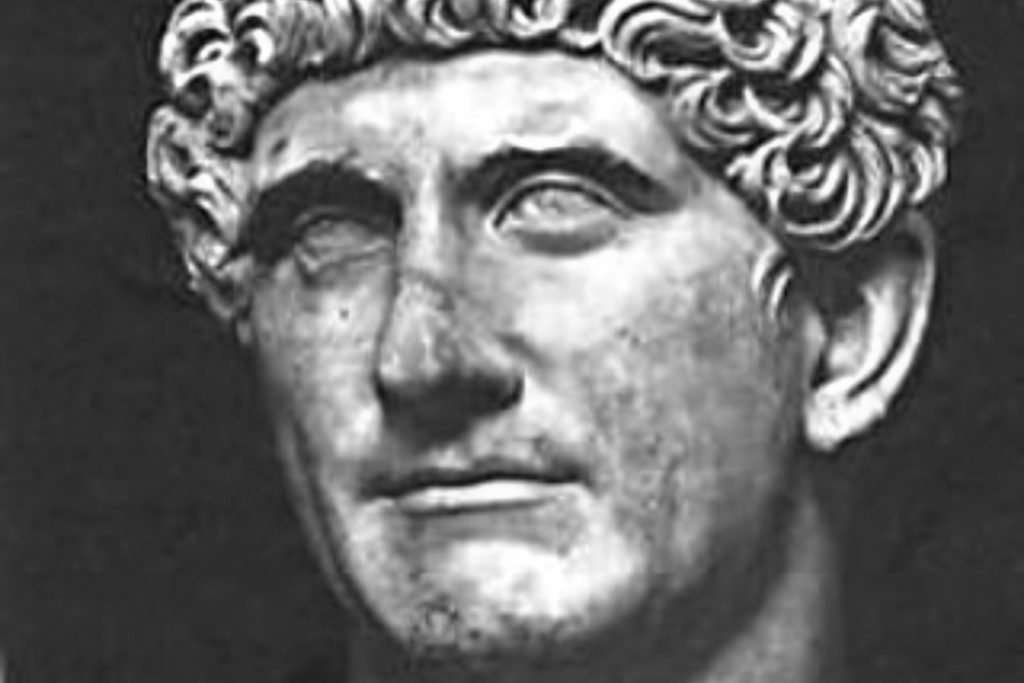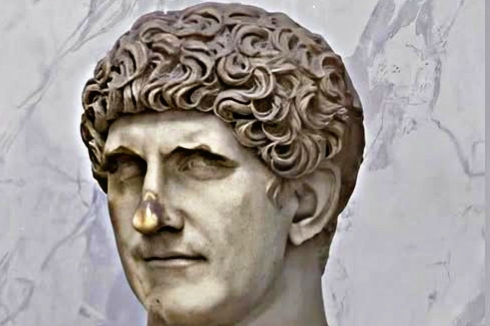Mark Antony, a name that reverberates through the annals of Roman history, was one of the most compelling figures of the late Roman Republic. A loyal supporter of Julius Caesar, a skilled orator, a formidable military commander, and a controversial political leader, Mark Antony’s life was marked by dramatic highs and catastrophic lows. His tumultuous relationships, particularly with Cleopatra, and his ultimate downfall have fascinated historians, playwrights, and audiences for centuries. This article delves deep into the life, achievements, and legacy of Mark Antony, highlighting the complexities of his character and his role in shaping Roman history.
Early Life and Military Beginnings

Mark Antony, born Marcus Antonius in 83 BCE, came from a prominent Roman family with strong military traditions. His father, Marcus Antonius Creticus, was a respected military leader, though his career was overshadowed by accusations of corruption. Antony’s grandfather, also named Marcus Antonius, was a celebrated orator and politician.
Despite his noble lineage, Mark Antony’s early life was marked by scandal and excess. He was known for his indulgence in drinking, gambling, and womanizing, earning a reputation as a notorious hedonist. However, this period of recklessness did not define his future. Antony eventually redirected his energies toward military and political ambitions, embarking on a career that would see him rise to prominence in the Roman Republic.
Alliance with Julius Caesar
Mark Antony’s fortunes changed when he aligned himself with Julius Caesar, the most powerful figure in Rome. Antony joined Caesar’s forces in 54 BCE during Caesar’s campaigns in Gaul, where he distinguished himself as a capable and courageous military leader. His loyalty to Caesar earned him significant political rewards, including election as tribune of the plebs in 49 BCE.
As tribune, Mark Antony played a crucial role in supporting Caesar during the escalating conflict with Pompey and the Senate. When Caesar crossed the Rubicon in 49 BCE, initiating a civil war, Antony stood firmly by his side. During the decisive Battle of Pharsalus in 48 BCE, Antony’s leadership contributed to Caesar’s victory over Pompey, cementing his position as one of Caesar’s most trusted allies.
Mark Antony as a Consul and Caesar’s Death

In 44 BCE, Mark Antony was appointed consul alongside Caesar, a position that placed him at the center of Roman politics. However, the political climate in Rome was fraught with tension. Caesar’s growing power and the perception that he aimed to establish a monarchy alienated many in the Senate. This culminated in Caesar’s assassination on the Ides of March in 44 BCE, a turning point not only for Rome but also for Mark Antony.
Following Caesar’s murder, Antony initially sought to maintain stability by reaching a compromise with the Senate and the conspirators. However, his dramatic funeral oration for Caesar, as immortalized by Shakespeare, incited public outrage against the assassins and positioned Antony as the champion of Caesar’s legacy. This speech showcased Antony’s rhetorical brilliance and his ability to sway public opinion, further solidifying his influence.
The Formation of the Second Triumvirate
The power vacuum left by Caesar’s death led to a struggle for control over Rome. Antony faced opposition from Octavian (the future Augustus), Caesar’s adopted heir, as well as from other factions within the Senate. To consolidate power and defeat Caesar’s assassins, Antony, Octavian, and Marcus Lepidus formed the Second Triumvirate in 43 BCE.
The Triumvirate launched a brutal campaign against their enemies, resulting in the defeat of Brutus and Cassius at the Battle of Philippi in 42 BCE. This victory avenged Caesar’s assassination and solidified the Triumvirate’s dominance over Rome. However, tensions within the alliance soon began to surface.
Mark Antony and Cleopatra: Love and Alliance

Mark Antony’s relationship with Cleopatra, the queen of Egypt, became one of the most famous love stories in history. Their initial meeting in 41 BCE in Tarsus was a spectacle, with Cleopatra reportedly arriving on a luxurious barge dressed as the goddess Aphrodite. Antony was captivated by her intelligence, charm, and wealth, and the two quickly formed a personal and political alliance.
Cleopatra provided Antony with financial and military support, while Antony’s presence bolstered Cleopatra’s position in Egypt. Together, they envisioned a powerful Hellenistic empire that could rival Rome. Their relationship produced three children and a deep bond that endured despite mounting political pressures.
However, Antony’s association with Cleopatra alienated him from Rome. Many Romans viewed Cleopatra as a foreign queen who sought to undermine Roman values. Octavian, Antony’s rival, capitalized on this sentiment, portraying Antony as a traitor who had abandoned his Roman identity for a life of decadence in Egypt.
Conflict with Octavian and the Battle of Actium
The rivalry between Mark Antony and Octavian escalated into open conflict, culminating in the Battle of Actium in 31 BCE. Antony and Cleopatra’s combined forces faced Octavian’s navy, commanded by Agrippa, in a decisive engagement off the coast of Greece.
The battle ended in disaster for Antony and Cleopatra. Betrayed by some of his own allies and outmaneuvered by Octavian, Antony suffered a crushing defeat. He and Cleopatra retreated to Egypt, where they prepared for their final stand.
Mark Antony’s Role in the Transformation of Rome

The late Republic was a time of profound transformation for Rome, and Mark Antony was at the heart of these changes. His alliance with Julius Caesar, participation in the Second Triumvirate, and rivalry with Octavian shaped the course of Roman history. Antony’s leadership helped to dismantle the old Republican order, paving the way for the establishment of the Roman Empire.
Antony’s political career was deeply intertwined with the tensions and conflicts of the era. As consul in 44 BCE, he attempted to maintain order in the aftermath of Caesar’s assassination, but his efforts were undermined by the growing rivalry with Octavian. The formation of the Second Triumvirate was a pragmatic solution to the chaos, but it also marked the beginning of Rome’s transition from a Republic governed by the Senate to a centralized Empire ruled by a single individual.
While Antony’s vision for the future of Rome differed from Octavian’s, his ambitions were no less grand. Antony sought to create a Hellenistic-Roman alliance that would unite the East and the West, with Alexandria as a cultural and political center. This vision reflected his deep connection to Cleopatra and his appreciation for the wealth and sophistication of the Eastern Mediterranean. However, this strategy alienated many Romans, who viewed Antony’s eastern ambitions as a betrayal of traditional Roman values.
The Death of Mark Antony
As Octavian’s forces closed in on Alexandria, Mark Antony’s situation became increasingly desperate. Believing Cleopatra had taken her own life, Antony fell on his sword, a tragic act that underscored his loyalty and love for her. Mortally wounded, he was taken to Cleopatra’s side, where he died in her arms.
Shortly after Antony’s death, Cleopatra also chose to end her life, rather than face the humiliation of being paraded as a captive in Rome. With their deaths, the era of the Roman Republic came to an end, and Octavian emerged as the undisputed ruler of Rome, marking the beginning of the Roman Empire.
Mark Antony’s Legacy
Mark Antony’s legacy is a complex one, shaped by his achievements as a general and statesman, as well as his personal failings. He was a brilliant military leader who played a pivotal role in the transformation of Rome, but his ambition and inability to navigate the treacherous waters of Roman politics ultimately led to his downfall.
Antony’s relationship with Cleopatra has often overshadowed his political and military accomplishments. While their love story is legendary, it also became a weapon in Octavian’s propaganda campaign, which portrayed Antony as a man seduced by a foreign queen and unworthy of Roman loyalty.
Modern historians, however, recognize Antony as a multifaceted figure who sought to balance his personal desires with his responsibilities as a leader. His loyalty to Caesar, his courage on the battlefield, and his vision for a Hellenistic-Roman alliance highlight his strengths, even as his political missteps reveal his vulnerabilities.
Mark Antony in Literature and Popular Culture

Mark Antony’s life has inspired countless works of art, literature, and drama. William Shakespeare’s Antony and Cleopatra is perhaps the most famous portrayal, depicting Antony as a tragic hero torn between duty and passion. The play captures the grandeur and intimacy of his relationship with Cleopatra, as well as the political intrigue that defined his career.
In modern media, Mark Antony has been portrayed in films, television series, and novels, often emphasizing his charisma, courage, and complexity. These portrayals contribute to the enduring fascination with his character and his role in one of history’s most tumultuous eras.
Conclusion
Mark Antony’s life was a tapestry of ambition, loyalty, passion, and tragedy. From his rise as one of Julius Caesar’s most trusted generals to his dramatic downfall alongside Cleopatra, Antony’s story encapsulates the drama and upheaval of the late Roman Republic. His achievements as a military leader and his role in shaping Roman history are undeniable, even as his personal choices and alliances contributed to his eventual demise.
Mark Antony’s legacy endures as a reminder of the complexities of power, the interplay of politics and personal relationships, and the human capacity for both greatness and folly. His life remains a subject of fascination, offering timeless lessons about leadership, loyalty, and the consequences of ambition.

